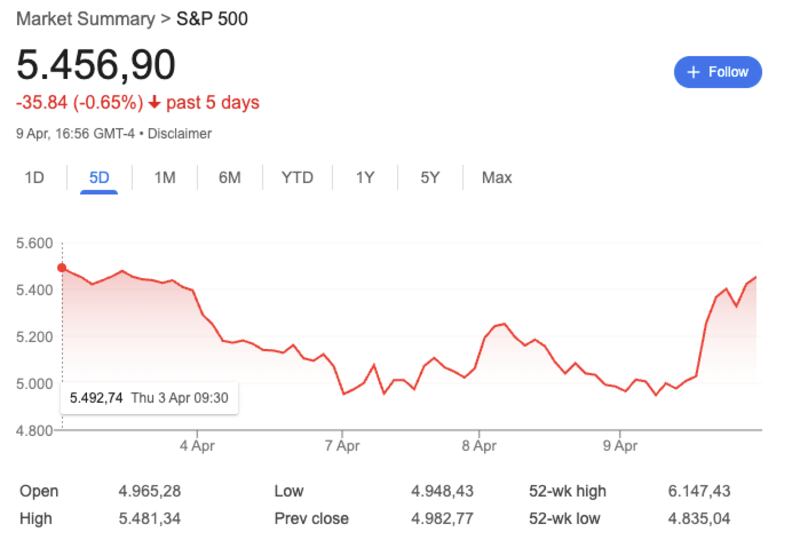President Donald Trump privately acknowledged his sweeping tariffs could spark a recession and wanted to ensure they wouldn’t lead to an even more ruinous depression, according to a report.
The president abruptly abandoned a key part of his trade war plan on Wednesday, announcing a 90-day pause on tariffs for dozens of countries after his initial policy triggered historic turmoil across global markets. He simultaneously increased tariffs on Chinese imports to 125 percent, accusing Beijing of having shown a “lack of respect” by retaliating to his levies.
Trump had told advisers he was prepared to accept “pain” and realized his policy could lead to a recession, but “said he wanted to be sure it didn’t cause a depression,” sources familiar with the conversations told The Wall Street Journal.
The Daily Beast has contacted the White House for comment.
While a recession is typically defined as at least two consecutive quarters of GDP decline, a depression is a more extreme collapse in economic activity lasting several years. The U.S. has weathered dozens of recessions since the beginning of the 20th century—including the recent 2008 financial crisis and during COVID— but it has only endured one depression, the Great Depression from 1929 to around 1939, in that time.
Sources similarly cited the market turmoil—and the sharp spike in bond yields in particular—in explaining Trump’s decision to hit the brakes on his tariffs in a New York Times report, which claimed that senior administration staffers feared “a financial panic that could spiral out of control and potentially devastate the economy.”

Treasury Secretary Scott Bessent and Vice President JD Vance had sought to take a more “structured” approach to tariffs that isolated China while still demonstrating that Washington, D.C., was sincere in aiming to address trade imbalances, the report added.
Multiple reports also claimed foreign leaders, business executives, and Republican lawmakers had lobbied Trump to change course as trillions of dollars were wiped from global markets. On Tuesday night, Trump had a roughly 30-minute phone call with several GOP senators who had been interviewed by Sean Hannity on Fox News earlier in the evening, sources told The Washington Post.
Sen. Ted Cruz, who had warned on the show that it would be a “mistake” to keep tariffs in place long term, said he warned Trump that other countries would retaliate. “[That] outcome, I expressed to the president, would be a terrible outcome that I think would be very harmful to the country and very harmful to Texas,” the Texas senator told the Post. “I also encouraged him, as I did on the Hannity show, to negotiate quickly one or more major trade deals.”
Senior administration officials including Bessent, deputy chief of staff Stephen Miller, and press secretary Karoline Leavitt immediately tried to paint the move as part of an intentional strategy from a master dealmaker—only for Trump to quickly contradict them, saying he’d actually hit pause on the tariffs because people “were getting yippy” and “a little bit afraid.”
President Trump on why he paused tariffs: “I thought that people were jumping a little bit out of line. They were getting yippy, you know, they were getting a little bit yippy, a little bit afraid.” pic.twitter.com/kzoH6psG15
— CSPAN (@cspan) April 9, 2025
Trump also appeared to undermine his commerce secretary, Howard Lutnick, who had laughed off the suggestion that mayhem in the bond market had influenced the retreat. “I was watching the bond market,” the president said, adding: “I saw last night where people were getting a little queasy.”
Rather than a grand strategy, Trump characterized himself as having acted “instinctively, more than anything else,” saying the final decision to hit pause “came together” early Wednesday morning. “We wrote it up from our hearts,” he said of his Truth Social post announcing the U-turn.
The post Trump Secretly Feared Dire Scenario Before Chaotic Trade War U-Turn appeared first on The Daily Beast.



















